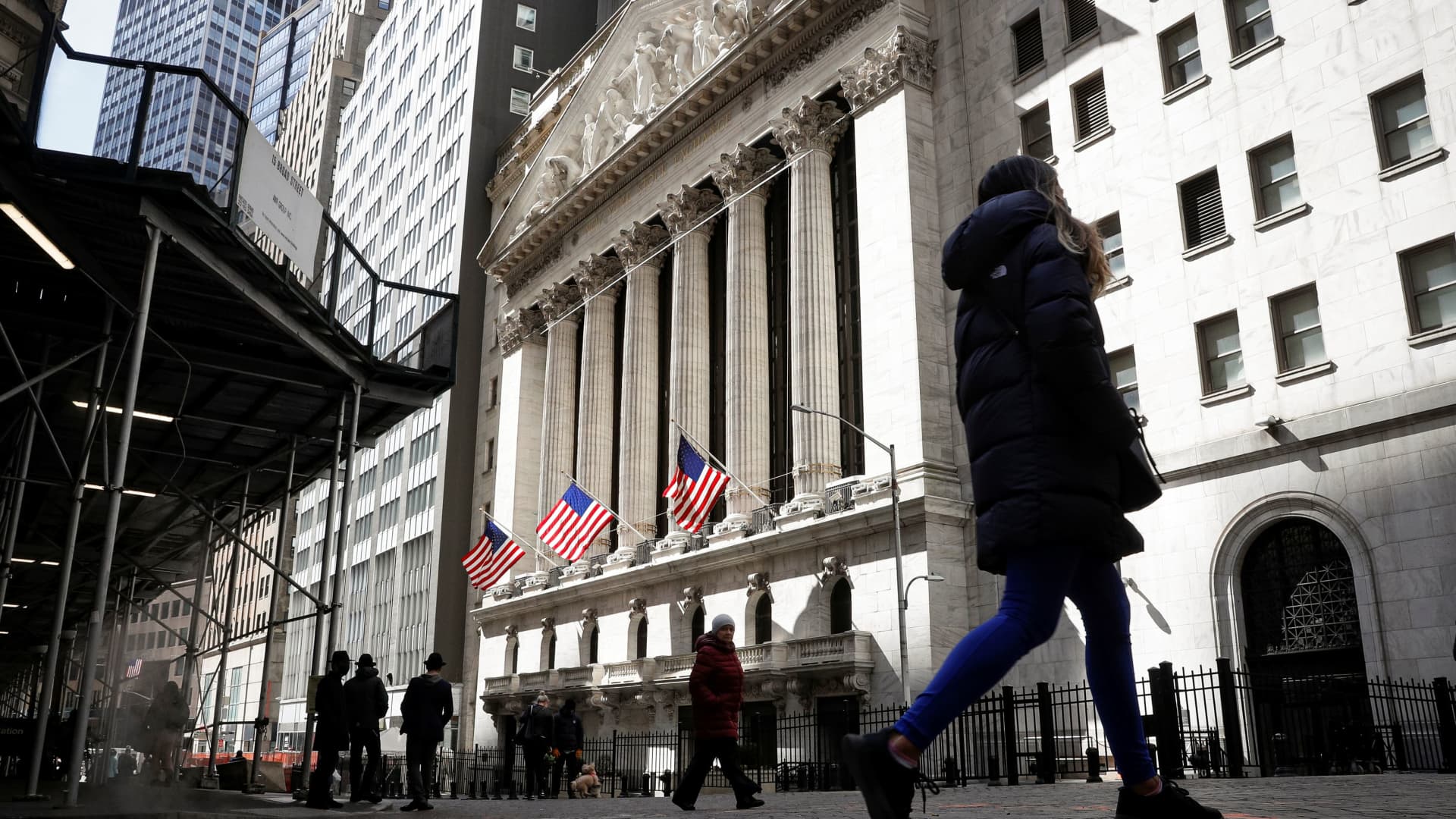
Hawkish comments from Federal Reserve officials and a hotter-than-expected August inflation report have weighed on stock markets in recent weeks as investors grapple with the prospect of higher-for-longer rate hikes even as recession concerns mount. The Fed announced a third consecutive 75 basis point hike on Wednesday that took its federal funds rate up to a range of 3%-3.25%, the highest it has been since early 2008. Projections from the meeting indicated that the Fed expects to raise rates by at least 1.25 percentage points in its two remaining meetings this year. Speaking ahead of the Fed meeting, investment veteran Patrick Armstrong believes the Fed is unlikely to keep hiking rates indefinitely. “I think consensus probably has the Fed getting to 4.25% in March next year, and then probably pausing. It will be driven by the U.S. economy as much as the inflation outlook. I think the U.S. is going to be on the cusp of a recession throughout early 2023 so it’s hard for me to see the Fed hiking aggressively once they realize the U.S. is pretty much in a recession or very close to a recession,” Armstrong, who is chief investment officer at Plurimi Wealth, told CNBC’s “Squawk Box Europe” on Monday. Armstrong is co-fund manager of the Prosper Global Macro fund , a diversified multi-asset fund with an inflation beating mandate. The fund was up 4.8% as of the end of August, outperforming major indexes in both the U.S. and Europe. The S & P 500 and the Stoxx 600 are down about 20% and 15%, respectively, in the same period. What’s in his portfolio Amid the uncertainty in stock markets, he believes the biggest risk is the earnings outlook, which remains “way too optimistic.” “We have not seen any significant negative revisions despite overwhelming evidence of a really poor economic backdrop where consumer spending is really going to be impeded. Margins are going to be squeezed and so are earnings per share,” he said. Against this backdrop, the Prosper Global Macro fund has taken on several short positions, as Armstrong bets that the values of these holdings will decline amid the market volatility. The biggest short holding in the fund is a 20% bet against 10-year Japanese government bonds. “The Bank of Japan owns half of all bonds that are outstanding. They’re desperately trying to cap their interest rates at 0.25% when other central banks are aggressively hiking … with a 40-year low yet you’re going to be importing inflation. I just don’t see any realistic scenario where the BOJ can keep this 0% 10-year in place. So, I think that’s an incredible short right now,” he said. Armstrong was referring to the Bank of Japan’s yield curve control (YCC) policy — a strategy that caps 10-year JGBs around 0% and offers to buy unlimited amount of JGBs to defend an implicit 0.25% cap around the target. Read more Fund manager says the bear market is going to get ‘nasty’ — but says he’s not ‘freaking out’ Looking for a short-term trade? This ETF carries risk — but outperforms when volatility spikes The Japanese yen is at 24-year lows. Here’s what to expect at the next BOJ meeting The fund also holds shorts in several tech and consumer stocks, such as food delivery service DoorDash , Chinese electric vehicle maker Xpeng , British online supermarket Ocado and plant-based meat substitute firm Beyond Meat . Armstrong also sees “significant downside” for commercial property stocks in the U.K. and retail property stocks in the U.S, where his fund is short British Land and Simon Property , respectively. He said it is a “pretty toxic environment” for commercial properties in the U.K. with the economy in “pretty terrible” shape, while the prospect of further interest rate hikes by the Bank of England will weigh on land value. The same challenges afflict the U.S. retail scene, in addition to an increasing trend of consumers shopping online, he added. — CNBC’s Jeff Cox contributed to the report
